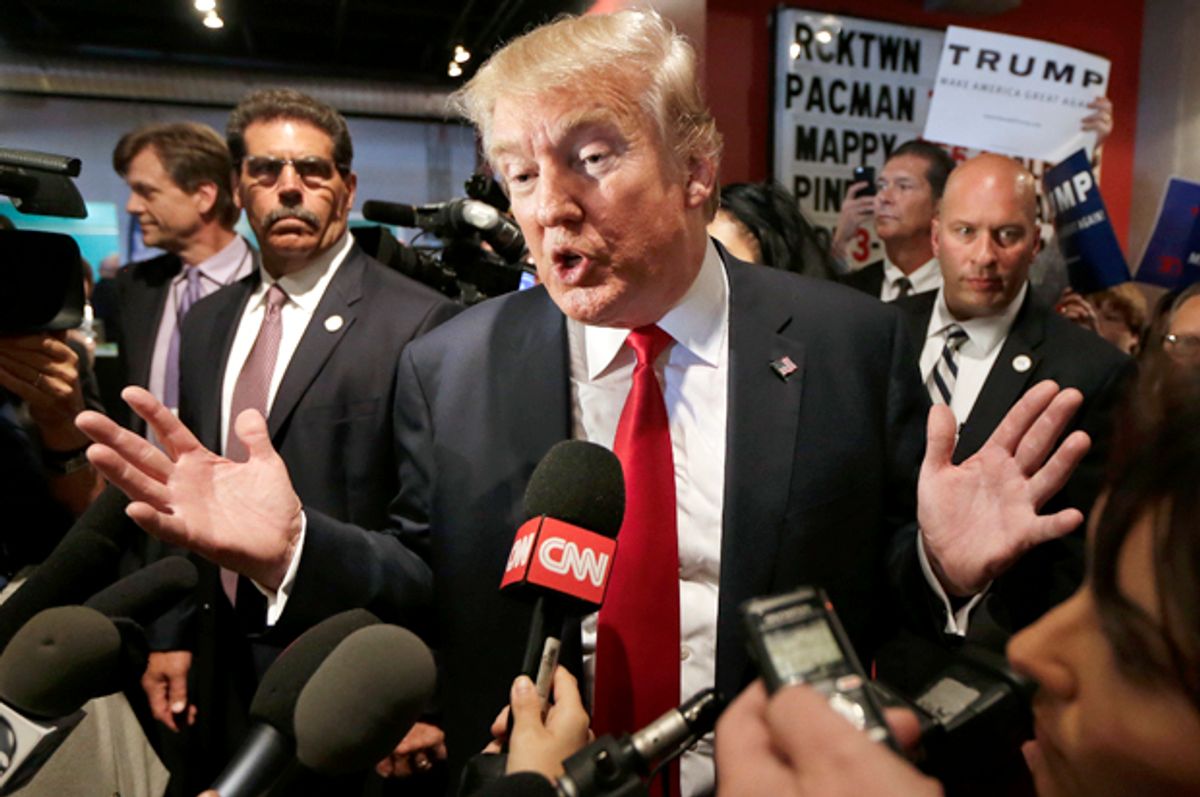The challenges to keeping politics focused on facts rather than superficialities has a long history, but it would be fair to say that our current election has favored gossip over substance in wholly new ways.
As we contemplate a November ballot with Donald Trump and Hillary Clinton as headliners, it’s hard to shake the feeling that they are more like prom king and queen than real candidates. If you had the sensation that these two were like high schoolers who were “fake” but still weirdly popular, here’s new proof to explain why.
It helps that both Trump and Clinton seem to be able to say almost anything based on the winds of public opinion. Their ability to constantly shift gears and appease the crowd is notorious. Trump flip-flops on what he thinks of Mexican immigrants. Clinton advocates for worker rights while supporting trade agreements that will decimate them. They are like the high school kid who will say anything to your face so that you like them, but then talks smack about you behind your back.
It’s a popularity contest, not a political campaign.
But let’s face it. This election isn’t really about the substance of the candidates anyway. It’s about the mainstream media’s spin of the candidates. I’ve already written about three key ways the media failed us this election. Now a new report from Harvard Kennedy School’s Shorenstein Center on Media, Politics and Public Policy shows us that it is even worse.
The core conclusion of the study is that media coverage of the 2016 presidential primary races focused on the horse race over the issues – to the detriment of candidates and voters alike. They further prove that the coverage affected the candidates’ chances of winning the nomination.
They show that the main media story was whether the candidate could win, not what the candidate stood for. And that’s why we are back at prom.
Throughout the primary season we watched with disgust at how the media ogled over Trump, but there is now clear proof that that practice had serious consequences for the other GOP candidates. According to the study:
“Week after week, Trump got the most press attention. There was not a single week when Ted Cruz, Marco Rubio, or John Kasich topped Trump’s level of coverage. During the time that Rubio was an active candidate for the Republican nomination, he got only half as much press attention as Trump. During the time they were still in the race, Cruz received roughly two-thirds the coverage afforded Trump while Kasich got only a fourth.”
Clinton also claimed far more coverage than Sanders. The report explains that:
“Sanders’ coverage trailed Clinton’s in every week of the primary season. Relative to Trump, Sanders was truly a poor cousin. He received less than half of the coverage afforded Trump. Sanders received even slightly less coverage than Cruz, despite the fact that Cruz quit the race and dropped off the media’s radar screen five weeks before the final contests.”
And folks wonder why Sanders supporters are pissed off.
The study goes on to show how coverage helped rig the system. They analyze the different coverage of Ted Cruz and Marco Rubio. They point out that the two candidates had fairly equal performance numbers; but that the fact that Rubio did not take a state early in the contest biased the media against him. According to the Harvard study, much of the media coverage of Rubio described him as a “’losing ground’ candidate, and there’s very little that’s positive in that narrative.”
Even more important, they demonstrate that “The media’s focus on the election game was so heavy in this period that the candidates’ character and policies were almost lost.” That fact may well explain why out of the many candidates that began the primary process the presumptive nominees for the Democratic Party and the GOP may well be the ones with the weakest character and policies.
They also show that one of the reasons why Trump had more positive coverage and Clinton had more negative was because Trump’s success was a surprise and Clinton was expected to win. Since she was seen as the likely winner, it wasn’t news when she won. That also meant that overall the news media focused more on the GOP race than the Democrats: “The perception that Clinton had a lock on the Democratic nomination diminished journalists’ interest in the Democratic race generally and in Sanders’ candidacy particularly.”
While the study is quick to suggest that the news media is not about promoting productive politics, it’s about profit, they still have great impact on elections: “Game-centered reporting has consequences. The media’s tendency to allocate coverage based on winning and losing affects voters’ decisions.”
Even in debate coverage the media focused more on who “won” or “lost” the debate more than on the actual things candidates said. The popularity contest nature of the coverage completely dumbed down public discourse.
How often did Sanders supporters hear that their candidate had no chance? How often was Kasich depicted as an underdog with no shot? The media began the narrative and the voters enacted it at the ballot box.
Just like our primary season prom king and queen, the mainstream media wants attention too. Mainstream news coverage is all about ratings, not substance. If shows that have more substance got better ratings, then that might well make a difference. But given the fact that Fox News has the most viewers and the most inaccurate reporting that seems unlikely.
If we don’t want our nation’s future to be like another episode of 'Gossip Girl," we are going to have to start asking serious questions about whether we want superficial media coverage to keep influencing the future of our democracy.

Shares